Welcome back for what might just be the last time! Something of a bitter sweet post today, as my journey with this blog comes to an end. I find it hard to imagine that I was so nervous about starting all of this up; the blog became one of my favorite parts of the MA experience. I have loved writing in a less formal style than usual and being able to incorporate visual elements, as well as explore and express a variety of my interests. Having read over all my posts, I have to say that I am quite proud of the finished result. I am proud of my reflections and thoughts on what are admittedly varied subjects, but the common thread of my absolute love for literature ties them all together quite nicely, I think.
Its time to look back; the first pieces of research, the early questions, the (often rambling) expressions of thought. This will lead us to perhaps the scariest part of it all – the conclusions! So, buckle up as we go right back to the start, or in other words, October 2019.
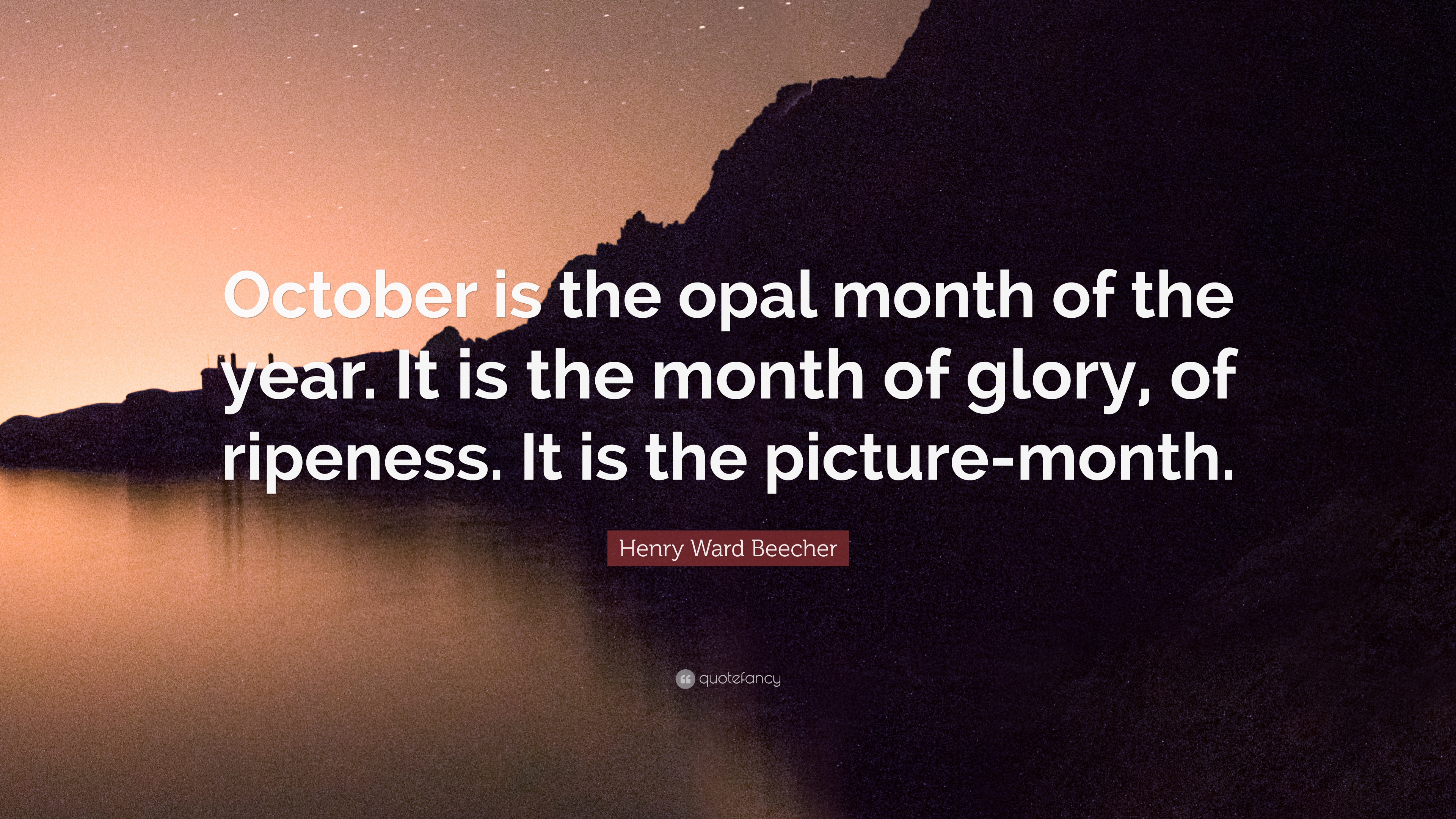
October marked the beginning of my classmates and I’s blogging journey; I think it is fair to say that many of us were nervous at the thoughts of putting our work out there in such a public (and consistent) fashion. In all honesty I was also secretly a bit excited, having ran a moderately successful Tumblr blog when I was a teenager.
I will admit that I was nervous when I first heard that we would be expected to write and publish academic blogs. My previous style of blogging was largely visual as I did not have much confidence in my writing abilities, or in expressing my own voice and opinions. Fortunately, I am now a much more confident and self assured person, and this has carried through to my writing and self expression. I am now proud to call myself an Irish poet and a writer; and now as it works out, a blogger!
8th October 2019 – Post one: Stepping Stones
It is somewhat odd to re-read my first ever post. I feel my writing style has actually changed a bit from October to March. While my early blog entries varied, my main man Philip Larkin was on my mind as a thesis topic from day one. When considering what to name my blog, I knew I wanted to incorporate Larkin in some manner, but not have the blog appear to be exclusively focused on the poet. Thus, From a Train Window was born. I must note here that I had no concrete ideas for a thesis title back in October. Larkin was a strong contender of course, but I also considered focusing on the music of Bob Dylan and Bruce Springsteen, or the films of Quentin Tarantino. Indeed even right now, in March, I am still tying up loose ends despite settling fully on Larkin. Life is soup and I am a fork.
My blog name, From a Train Window, was actually inspired by Larkin and one of his more famous musings – “you can look out of your life like a train and see what you’re heading for but you can’t stop the train”.
Stepping Stones
I left a bit of a gap between publishing my first and second blog posts; partly due to a dose of writers block, and partly due to uncertainty as to the direction in which I wished to take the blog. As the weeks went by I became much less uptight and simply wrote about what was important to me. My second blog post was a reflection on Todd Phillip’s Joker, with Joaquin Phoenix in the title role. While not related to class work or my thesis research, this post massively boosted my confidence in blogging.
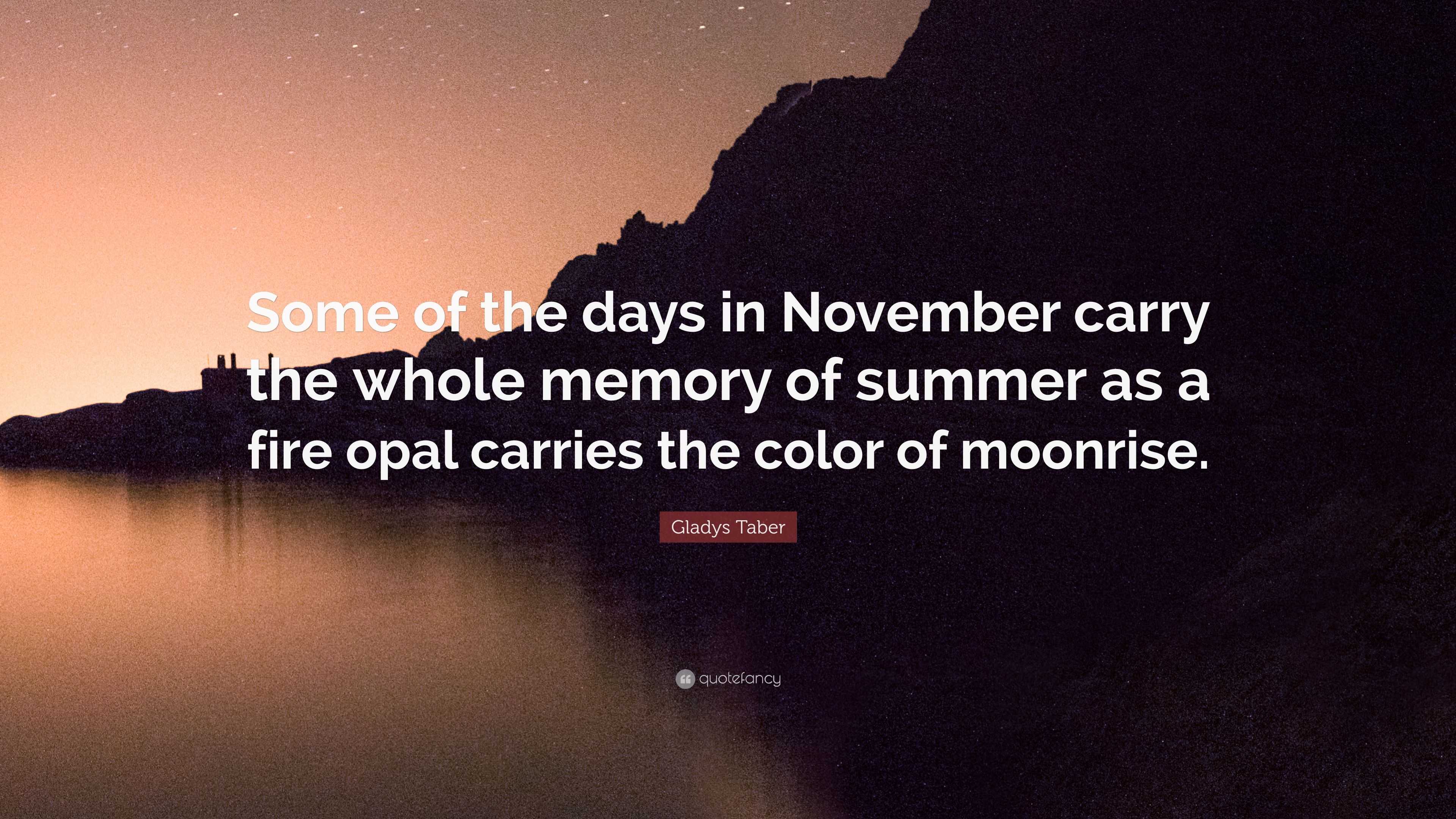
As November rolled around, life got busy; lots of reading for class, hockey matches every weekend, research, drinking enough water, staying alive. The usual. This month gave me my first taste of an MA assignment; I wrote my very first essay as a masters student on none other than Sigmund Freud.
At the moment, I’m working on my first essay as part of the Theories of Modernity module. I’ve chosen to write about Sigmund Freud’s famous piece Totem and Taboo – not 100% sure I won’t regret this decision but at the moment I’m rolling with it! Freud is, for lack of a better word, an interesting cultural figure. I feel as though almost everyone’s first introduction to the founder of psychoanalysis is of course, the Oedipal Complex; that and the inevitable rejoinder- well I do not want to sleep with my mother, thank you very much. Or father, gender dependent. Protesting against Freud’s theories seems rather like Bill Clinton declaring he did not have sexual relations with that woman; does it matter if he did or he didn’t? Society, or Freud in this case, thinks you did. Too bad, you’re complicit in incest now, simply because you didn’t like your Dad.
November 2nd: Decoding Freud and Other MA Adventures – Hows Your Head?

Working on this assignment was admittedly, very difficult. However, in hindsight, I enjoyed the challenge of piecing together my research and improving my referencing skills. November was a prolific month of blogging for me, and I uploaded one of my most personal posts: This Too Big World: Writing and Healing. I do not wish to draw too heavily from this post as it does not relate strictly to my research, or reflections on my modules, but I am both glad I wrote it, and proud I published it. One of my goals for my blog was that pieces of my personality would be sprinkled throughout. The title is a quote from On The Road the seminal work of Beat poet Jack Kerouac which goes as follows:
“I wished I was on the same bus as her. A pain stabbed my heart as it did every time I saw a girl I loved who was going the opposite direction in this too-big world of ours.”
Jack Kerouac / On The Road
I produced one of my most well received blog posts in November: Mad, Bad and Dangerous to Know? Rediscovering the Beauty In Byron. Again, I must thank Mary O’Connell for her wonderful lectures during our Romanticism module.
While I enjoyed Childe Harold‘s depiction of a world weary traveler seeking a satisfying distraction, it was Don Juan that really stood out to me. Don Juan is Byron’s satirical inversion of the legend of Don Juan, a notorious womaniser. Bryon instead chose to portray Juan as the one easily seduced, a tale told in 16 cantos and an unfinished 17th due to his untimely death in 1824.
November 16th: Mad, Bad and Dangerous to Know? Rediscovering the Beauty In Byron
Our classes on Byron remain a highlight of the MA, and produced what is, at least in my opinion, one of my strongest blog posts with some insightful reflections. Here is where I see the blog take on a more reflective tone, and it is where I see myself settle into writing about academic material with greater comfort.
Yet there is such reverence in stanzas 88, 89 and 90 in which the father of a “weaklier child” attempts to nurse him back to health while lost at sea. Byron’s account of fresh rain water coming just a little too late is heartbreaking, and visually flawless. The reader cannot help but see the desperate and heart sick father squeezing “out a rag some drops of rain” in a last effort to preserve his son’s life. These stanzas and the quiet elegance they possess are almost jarring when first reading Don Juan. Is this the same poet who had earlier equated human life to “biscuit casks and butter” and gaily detailed the sailors cannibalism? Critics at the time did not fail to see these occasional and carefully placed moments of beauty in Byron’s work; if anything it further enraged them that he was capable of such lyricism yet instead nose dived into further immorality. Yet it is the stark contrast between Bryon’s frankness and his moments of beauty that make Don Juan such an incredible reading experience; Byron drags you down like the shipwreck only to catch and resuscitate you with his incredible and elegant prose.
November 16th: Mad, Bad and Dangerous to Know? Rediscovering the Beauty In Byron
Speaking of academic material, and as the first of my seminar posts appeared in November, I will now touch on one of the mandatory elements of our blog: posting about two of the Research Seminars held within the School of English. Blog posts on the seminars were not meant to simply be a retelling of what was said; they were to serve as a jumping off point, an inspiration for further thought. I think I achieved this more successfully with my second Seminar post. I first attended Dr Yen-Chi Wu’s paper on the relationship between Irish writers and the New Yorker. While vastly different from my primary areas of research, the seminar was nothing if not refreshing.
The aspect of Yen-Chi Wu’s paper that I found most interesting focused on the female writers Elizabeth Bowen, Mollie Panter-Downes and Mary Lavin. I have to thank Yen-Chi Wu for introducing me to both of these women writers, as I had not read any of their work before this research seminar! Bowen’s short story Everything’s Frightfully Interesting was published in The New Yorker in 1941, and is crucial to understanding her stance on the War. Bowen was an Irish-British writer and much of her work strives to capture the realities of life in wartime London.
November 22nd – November Research Seminar: Dr Yen-Chi Wu on Irish Writers and The New Yorker
The second seminar I chose to write on for the blog was Professor Goran Stanivukovic’s paper on Daniel Maclise’s painting ‘The Disenchantment of Bottom’. I loved this seminar and took about 4 pages of notes; it was very different to what I had been expecting but that was part of its appeal.
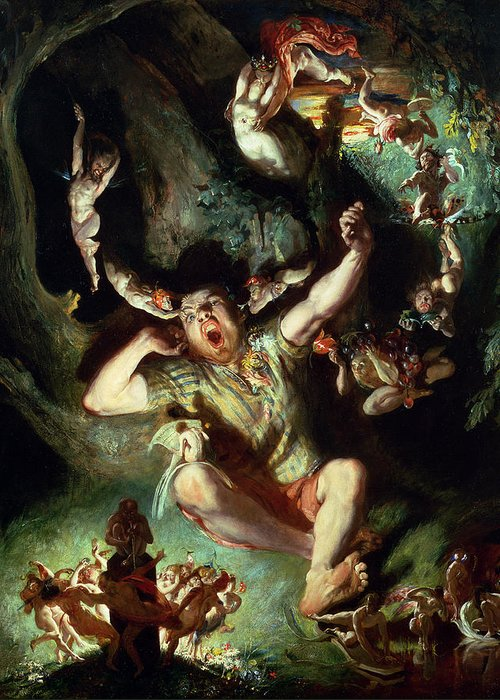
This seminar was particularly appealing as it allowed me to tap into my love for art, something I had been somewhat neglecting over the last few months.
Speaking on Irish artists, MacLise’s painting reminded me (curiously enough perhaps) of the work of Harry Clarke, most famous for his stained glass panels. Notably Clarke’s first major commission was for our own Honan Chapel, here in UCC. I found “The Disenchantment of Bottom” particularly reminded me of Clarke’s panel depicting Saint Brendan meeting the unhappy Judas. Note the similarity in the sense of anguish shared between Maclise’s Bottom and Clarke’s Judas: both find themselves in unfamiliar territory, surrounded by shadowy figures. I also see intriguing similarities in the vivid slashes of color and the haunting expressions of the peripheral figures.
February 24th – Keep Your Head: Unraveling the Disenchantment of Bottom
In keeping with discussing the compulsory elements of our module, I wish to include here our Wikipedia Editing assignment. This actually turned out to be much more enjoyable than I thought. I chose to edit the Wiki ‘Relationships that Influenced Philip Larkin’, primarily adding information on his friendship and love affair with Maeve Brennan.
I then moved onto adding information about Maeve’s relationship with Larkin; I was glad to be able to emphasise that while Brennan’s romantic relationship with Larkin lasted for 18 years, their unique friendship spanned three decades; there was much more to Larkin and Brennan than simply a love affair! I also added information on Brennan’s particular impact on Larkin’s poetry; he was in fact, heavily influenced by their relationship. This is particularly evident with his collection The Whitsun Weddings, which he once described as Maeve’s book! (“You know The Whitsun Weddings is your book, don’t you”.)
6th February: Something Wikipedia This Way Comes: EditWikiLit
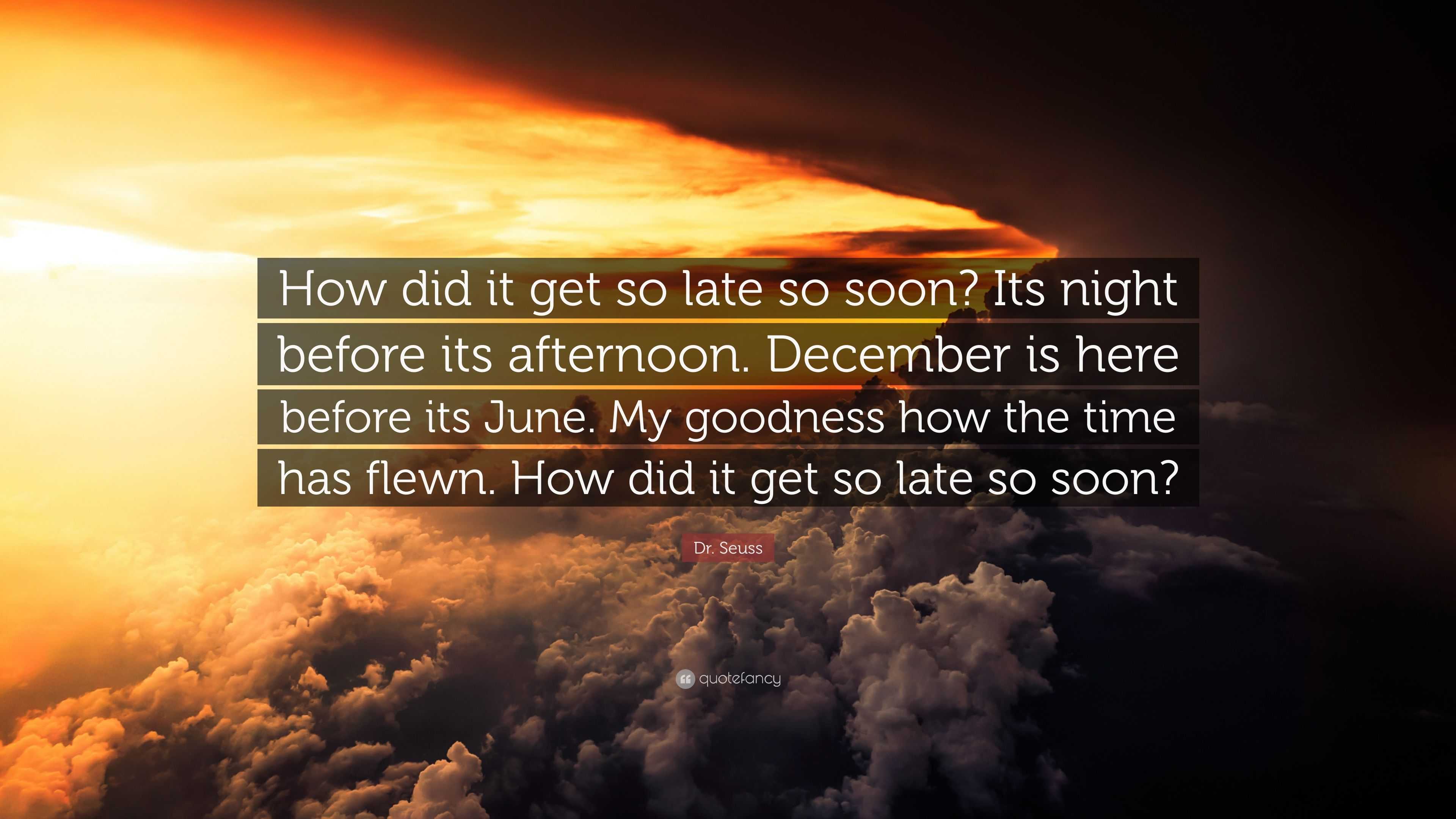
By the time December and anticipation for Christmas had settled over Cork like a mist, I was exhausted. It is fitting that I only posted once! However, my reflections on the poet John Clare make up what I think is one of my favorite posts on the blog. I absolutely fell in love with Clare’s poetry, as well as his tragic life story; it has been a struggle to only include snippets of the post for my portfolio.
Clare’s poems are so accessible, even if they are sometimes tragic and heart rending to read. Keats and Shelley were master poets, there is no debating that, but sometimes you just are not in the mood for reading Shelley’s Mont Blanc or any of Keat’s odes, regardless of their beauty. This, at least for me, is where Clare comes in; his nature poems are deceptively simple & authentic, focusing on the most simple aspects of the natural world. I deeply recommend reading The Nightingale’s Nest – it is a joy to experience both the easy, serene tempo of the poem, and the sense of wiling the afternoon away beside Clare. Clare was perceptive in ways beyond his own poetry; he saw straight through the city-boy in Keats’ nature poems, once remarking that his contemporary sought “behind every rose bush… a Venus and under every laurel grove a thrumming Apollo”. It is as though Clare speaks directly to every mildly frustrated poetry reader who is looking for even just a drizzle of the real world. If nothing else, for those predisposed to always root for the underdog (me), Clare will steal a little piece of your heart.
December 5th – December Musings: Tracking Down John Clare & Other Pursuits
What I loved most about Clare were his parallels to Larkin; parallels I admit I was surprised to find. The two were so different, after all. However, I could see echoes of Clare in Larkin’s ‘At Grass’.
While the horses may not have the same freedoms as some of Clare’s poetic subjects, each man’s work is a tempered with a consistent respect for the natural world. Larkin goes on his way without bothering the horses; he is capable of recording his musings without disturbing their peace. Clare is similar; his love for the natural world can be encapsulated in a line from The Nightingale’s Nest: “we’ll leave it as we found it”.
December Musings: Tracking Down John Clare & Other Pursuits

I will readily admit that I have been dreading the moment I reached January when writing this portfolio. It was the hardest month of my life, and I have not been the same since. My friend, Cameron, was murdered and everything I have written after that night has been touched with a grief I would not wish on anyone. I threw myself into my research throughout January, and began to see the direction my thesis on Philip Larkin would take. This was the one positive of having to distract myself. On the 29th of January I wrote “All this, simply to be where you are: Friendship as the Greatest Love in Life”. Aside from touching on my own friendships, I was pleased to be able to further illuminate Larkin’s relationship with Maeve Brennan, for whom he wrote ‘The Dance’. Writing this post helped me realise how important it was to me that my research could highlight the softer, less cynical side of Larkin.
Although Larkin and Brennan’s relationship did not have a fairy tale ending, her respect and love for him remained consistent right up to the end of the poet’s life. Brennan wrote that the Larkin she knew was a “stimulating companion, witty, urbane, great fun to be with”. Her Philip was a man of “good-natured humor, great tenderness and inspiring idealism”. Indeed, so great was her loyalty to Larkin they were even linked in death: the epitaph on her grave is the famous “what will survive of us is love”.
29th January – “All this, simply to be where you are”: Friendship as the Greatest Love in Life

My January posts also include early musings on my thesis topic, as well as the poem ‘The Mower’, which you can read here: Thoughts on a Thesis: Looking for Love with Philip Larkin.
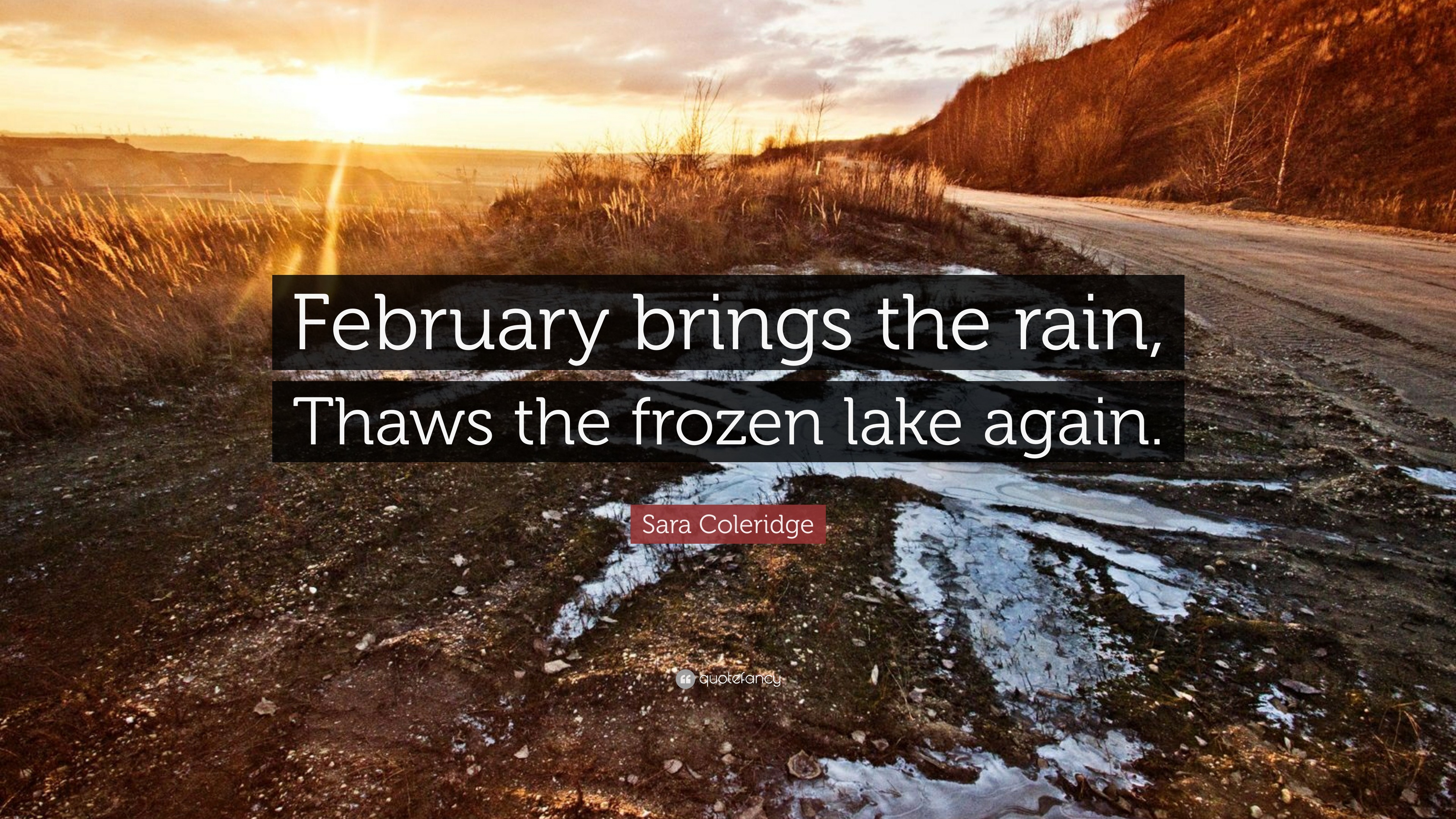
As written above, February brings the rain. I would like to say that this month brought me some healing; I certainly made the effort to write and blog a substantial amount. February brought a welcome distraction in the form of the Academy Awards, an event I look forward to every year. This year in particular, I was excited; my favorite actor, Joaquin Phoenix, looked set to finally receive the appreciation he deserved. “Run to the Rescue with Love & Peace will Follow”: Joaquin Phoenix, The Oscars & The Forever in Grief is worth reading if you adore film as I do, even if just to re-watch Phoenix’s beautiful acceptance speech.
I have made it my mission to not allow grief to make my heart hard and cold: love and kindness are the most precious gifts we can give.
11th February: Run to the Rescue with Love & Peace will Follow”: Joaquin Phoenix, The Oscars & The Forever in Grief
My (arguably) most important post in February was the following: Awkward Reverence: Finding Faith in Philip Larkin’s ‘Church Going’. My musings on ‘Church Going’ would eventually contribute quite significantly to my paper for the wasn’t-to-be Mini Conference.
Church Going is Larkin at his softest but it is (thankfully) not without his humor. Note the poet’s observation that the silence was “brewed God knows how long”; while of course, God could quite literally know how long is has been silent, it is also the poet’s gentle way of showing his indifference. This line has also always seemed somewhat philosophical to me. Much like the silence’s length, only God knows how many men have stood in it, searching for answers just as Larkin did. Larkin himself declares that he is “at a loss” about what he is truly seeking every time he finds himself in churches, eventually concluding that perhaps he is drawn there simply because so many others have felt the same lure before him.
March 18th: Awkward Reverence: Finding Faith in Philip Larkin’s ‘Church Going’
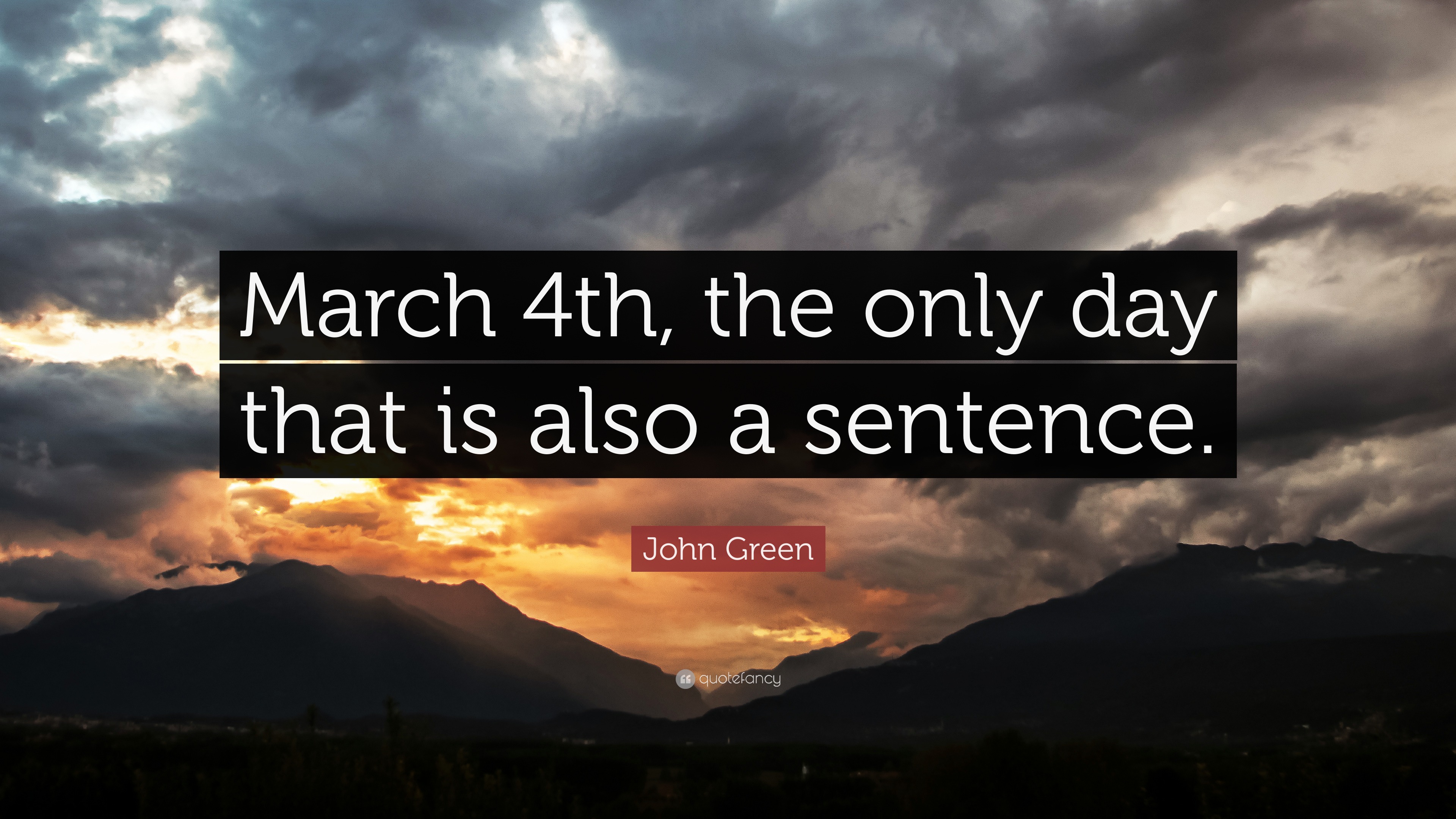
This brings us to the last month of my MA blogging experience: March 2020. It was a month that was mostly filled with Larkin, and Mini Conference prep. I shaped most of my ideas in David Becoming Goliath: Larkin’s Lifelong Revolt Against The Giants of Modernism. The conference was unfortunately cancelled due to Covid-19. However, we still hosted a sort of virtual conference as best we could, by posting our papers online. I won’t spoil too much of my research here: you can read it all over on Textualities 2020: Live and In Isolation – Modernism? I Don’t Even Know Him. I am hopeful that all of my mini-conference prep will significantly help me while writing my thesis on Larkin’s poetic persona.
Today I will be presenting research on the British poet Philip Larkin: specifically, his rejection of the literary movement of Modernism. I will approach this by discussing Larkin’s differing responses to T.S Eliot and Thomas Hardy, with an aim to illustrate how these responses contribute to Larkin’s distinct poetic persona.
21 March – Textualities 2020: Live and In Isolation – Modernism? I Don’t Even Know Him
Some other March highlights include No Place Like Home? Longing, Loss & Larkin’s ‘Home is So Sad’. I really encourage everyone to read ‘Home is So Sad’ it is an utterly beautiful poem. While these reflections did not necessarily fit into my thesis topic, I still feel they are important.

‘Home is So Sad’ raises questions that I have often sought to answer in my own poetry. What really is a home? Is home not a place but its people? How can a home call itself a home when there is nobody left to make it one? The answer to many of these questions may be as simple as memories: the ghosts left behind long after we leave a place.
17th March – No Place Like Home? Longing, Loss & Larkin’s ‘Home is so Sad’
Time to glance at my last post! Honestly I’m a little bit heartbroken its all over; I have loved blogging. It has been some much needed therapy. My last post was Friends Never Say Goodbye: Signing Off. Its a lighthearted piece to round off the last few months. I simply included my favorite unpublished Larkin poem, as well as some musical numbers from The Road To El Dorado, namely the song from which the post’s title was born.

But isn’t that the beauty of literature and film? Even in times like this, and even with the piece of my heart that shattered with my friend’s death, the most deceptively simple things can bring comfort and peace.
March 26- Friends Never Say Goodbye: Signing Off x
I am exposing myself here as hating goodbyes; most likely because I never got to say it to my friend. So I will just say thank you for reading along with my MA journey, and I hope you both enjoyed and took something from it. Stay safe, tell the people you love that you love them. ❤ I will leave you with two final things; the words of Larkin, and a glimpse of the party the world will have when isolation ends.
We should be careful of each other, we should be kind
While there is still time. – Philip Larkin.

Works Cited:
Brennan, Maeve. The Philip Larkin I Knew. Manchester University Press, 2002.
James, Clive. Somewhere Becoming Rain: Collected Writings on Philip Larkin. Picador, 2019.
Larkin, Philip. Required Writing Writing: Miscellaneous Pieces 1955-192. Faber and Faber, 1983.
Larkin, Philip. The Complete Poems. Edited by Archie Burnett. Faber and Faber, 2012.
Larkin, Philip. All What Jazz: A Record Diary. Faber and Faber, 1970.
Leader, Zachary. The Movement Reconsidered. Oxford University Press, 2009.
Thwaite, Anthony. Selected Letters of Philip Larkin 1940-1985. Faber and Faber, 1922.
Humayun, Sarah. Different from Himself: Reading Philip Larkin After Modernism. University of Edinburgh, 2013.
Motion, Andrew. ‘Philip Larkin & Me: A Friendship with Holes in It’. New Yorker, 2017.
Moeyes, Paul. ‘The Return to The Native: Time and Tradition in the Poetry of Philip Larkin’. (Chapter in In Black and Gold: Contiguous Traditions in Post-War British and Irish Poetry).
Osborne, John. Larkin, Ideology and Critical Violence. Palgrave, 2007.